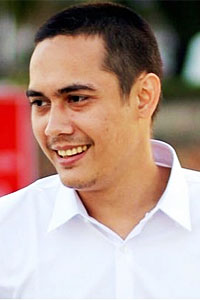Last week the Philippines became the second country in the world to withdraw from the International Criminal Court (ICC) after Burundi, which left in 2017. Many observers, myself included, see this as an attempt to evade an investigation into President Rodrigo Duterte's deadly war on drugs, but it is not going to work.
"Duterte may think his country's withdrawal from the ICC is a show of strength. But on the contrary: his bald-faced effort to protect himself from the court's reach looks more like an act of desperation for a man who appears deeply implicated in alleged crimes against humanity," wrote Param-Preet Singh, associate director of the International Justice Program at Human Rights Watch.
In any case, she noted, the ICC can still try crimes committed while the Philippines was a member.
Manila began the process of withdrawing from the ICC last year due to what President Duterte called "baseless, unprecedented and outrageous attacks" by United Nations officials and violations of due process by the ICC.
A presidential spokesman in Burundi adopted a similarly aggrieved tone in 2017, saying the ICC had shown itself to be "a political instrument and weapon used by the West to enslave."
By sheer coincidence, the ICC had just announced a preliminary investigation into violent street protests and political killings that left hundreds dead in the African country in 2015 and 2016.
A UN report said there was "abundant evidence of gross human rights violations" that could lead back to Burundi's leaders. I expect that in the Philippines, Mr Duterte knows there is evidence that could directly link him to extrajudicial killings.
The hardman president has repeatedly denied ordering police to kill drug suspects, while the police reject activists' accusations of murder and cover-ups, saying some 4,000 people killed in police encounters were armed and resisted arrest.
The ICC only began its preliminary investigations in the Philippines last month, but as the evidence-gathering moves forward, I believe there are certainly things that Mr Duterte and his killing squads will have to hide.
"Several sources" now estimate that up to 27,000 people may have been killed in Mr Duterte's war on drugs since mid-2016, the UN High Commissioner for Human Rights, Michelle Bachelet, said on March 6.
But despite "serious allegations of extra-judicial killings", only one case, the widely reported killing of a teenage boy, has been subject to investigation and prosecution.
Mr Duterte has always claimed that the Philippine justice system can deliver justice, but the conviction of three police officers in a single case, against a backdrop of thousands of allegations of excessive force, does not add up.
It is estimated that there are at least 2,300 unsolved drug-related homicides in the Philippines since the war on drugs began. But that is only around 10% of the estimated total deaths. So, how many more are unaccounted for? And how many could be linked to Mr Duterte?
The president himself admitted in a speech last September that he might have been responsible for some excesses during his previous life as the tough-guy mayor of Davao City. "My sin is extrajudicial killings," he said. In the same speech, he called ICC officials "fools" with an added racist comment directed at ICC Chief Prosecutor Fatou Bensouda -- "especially the black person, whoever, I'll hit the head of that prosecutor."
Ms Bensouda finally got her say in February when she announced the ICC investigation, to the applause of Amnesty International and others.
James Gomez, director of Amnesty in Southeast Asia and the Pacific, said Philippine authorities had failed to act against the "shocking atrocities committed in the government's so-called war on drugs" because they are "unwilling and unable to bring the perpetrators to justice".
I agree with Mr Gomez that authorities in the Philippines have been turning a blind eye to extrajudicial killings, and that the UN and the ICC will expose police wrongdoing.
But finding a link to the highest office in the land is another matter. Not because the president is innocent -- that will be up to the court to decide -- but it will be very hard to find evidence against a leader of a country that ranks 99th out of 180 on the Corruption Perceptions Index.
That is the same ranking, by the way, as Thailand, where a billionaire photographed sitting next to a black panther carcass was cleared last week of having anything to do with the animal's death.
